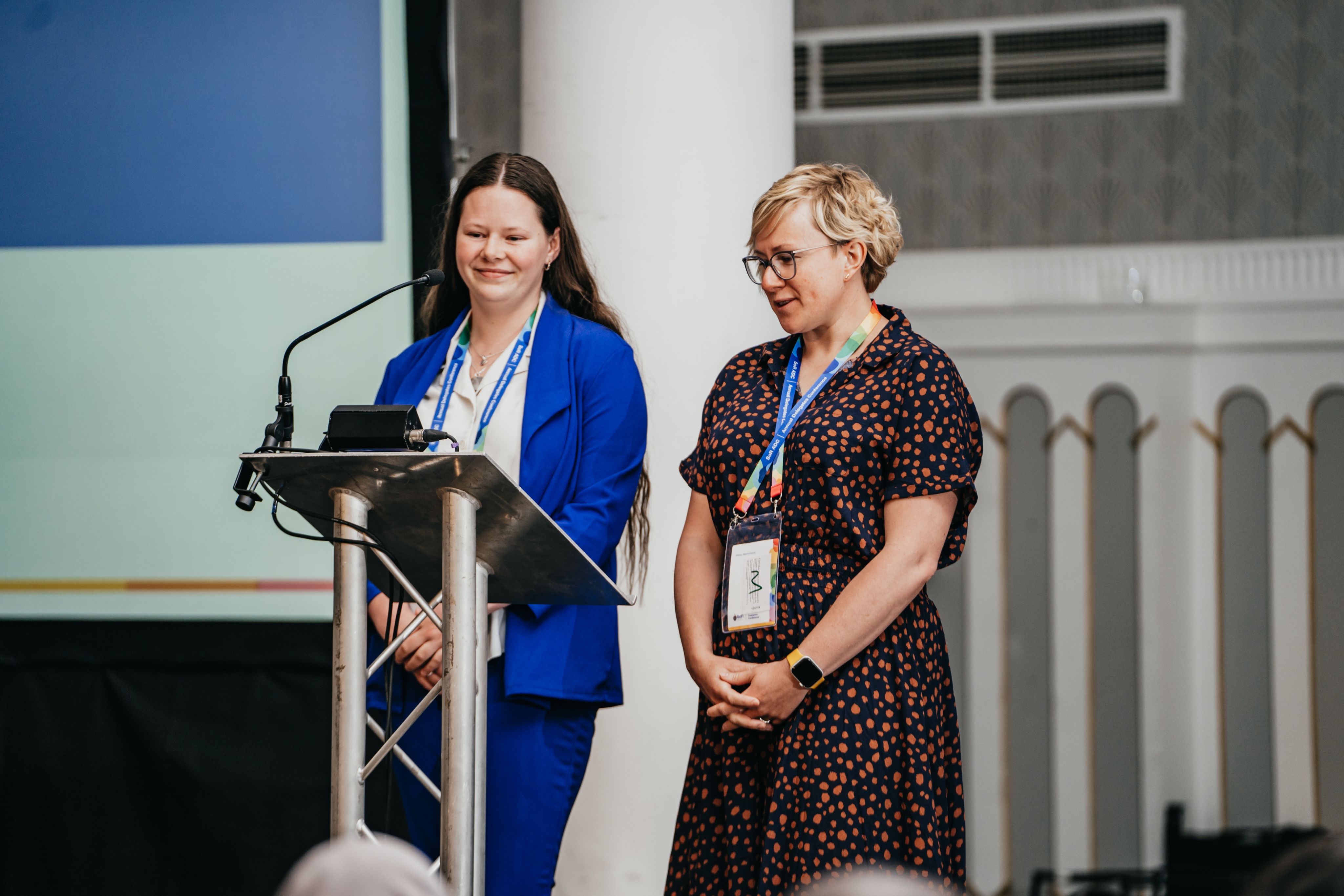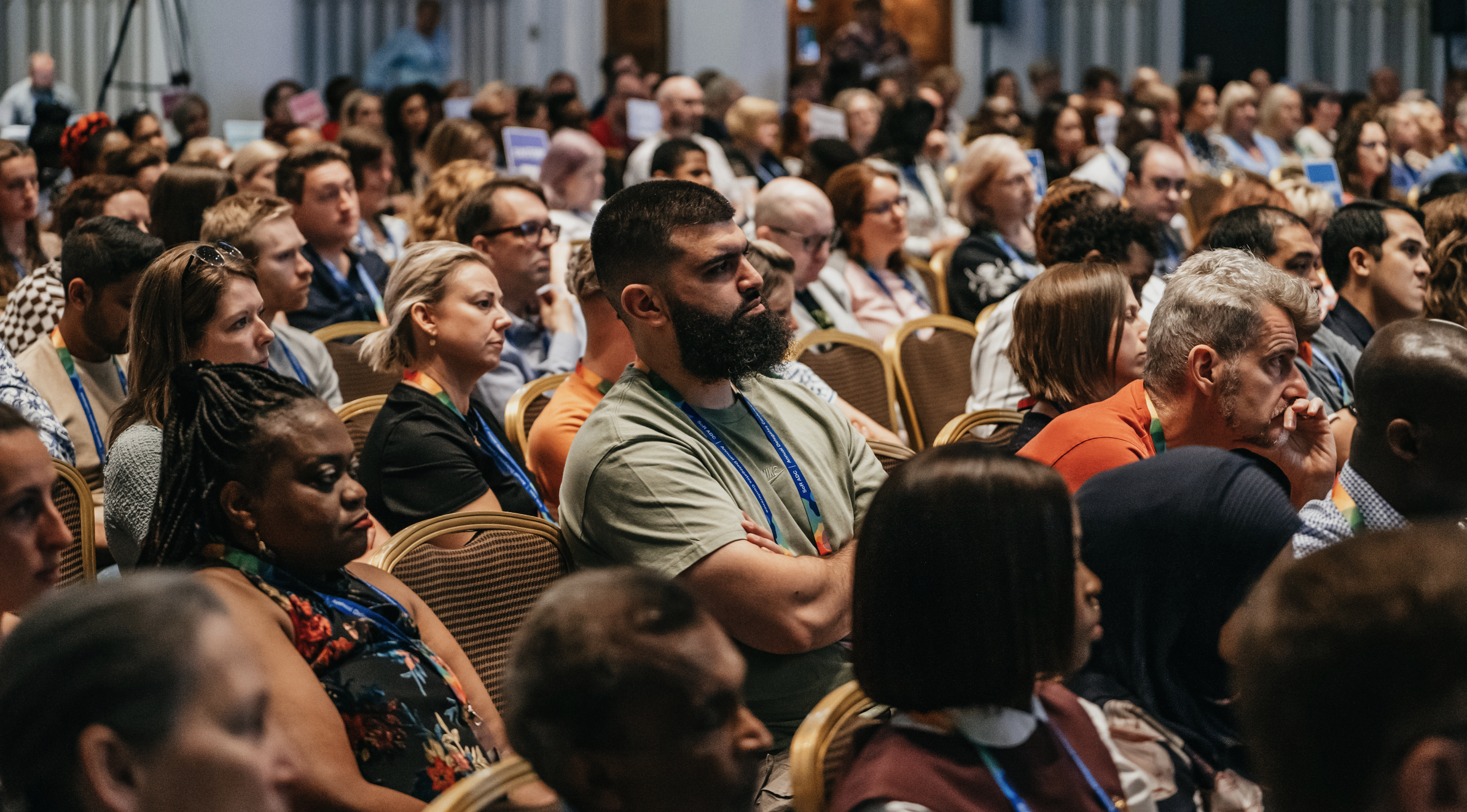
Professional
How your colleagues voted at this year's Annual Delegates Conference
Society of Radiographers members from around the UK joined the Annual Delegates Conference (ADC) to have their say on SoR strategy and policy. Here we round up all the key debates from the two-day event.
The ADC gives SoR members a unique opportunity to help shape the strategic direction of the Society and the wider profession.
Bringing together up to 300 members, including regional representatives, regional and national officers and UK Council, the ADC deals with current issues affecting the radiography profession or matters of personal importance to members.
Each region and country can propose motions and send a delegation to the conference. Motions can be on any topic and the ones selected for the ADC by the Delegate Conference Committee (DCC) are debated and voted on by those at the conference. If a motion is carried, it is then taken to UK Council to be actioned.
This year’s ADC took place in Leeds and was live-streamed to SoR members. All videos are now available to watch on the on-demand library.
So what decisions were taken regarding the future direction of SoR policy and strategy? Here we give a taste of the speeches on the key motions carried at the conference (wordings summarised). You can also download the full list of more than 50 ADC motions.
Public policy
Motion 1
Conference calls on UK Council to work with other health unions to stage a priority campaign to fight for more resources for health and social care, which are so desperately needed, and to highlight the importance of imaging across all services.
Fiona Bond, South West region, proposed the motion: “We are all aware that the NHS in general has not been given adequate support from the government. All services and professions are struggling nationwide in terms of recruitment and retention, and this has a tremendous impact upon service users and staff alike. This, quite simply, cannot continue.”
Ollie Harvey (pictured), Yorkshire and North Trent region, seconded: “Our retention and recruitment rate is shocking. Our equipment is failing and out of date, our morale is through the floor. The service depends on our goodwill to do overtime to be able to fill vacancies, and winter pressures start earlier and end later. We are just not getting the support we need from the people that we should be getting it from. We are all in this together, and the only way that we are going to be able to fight this is, as a conference, to vote to support this motion.”
Motion 2
The government's recent decision to scrap a dedicated cancer strategy is a decision that will cost lives. This conference calls upon UK Council to challenge the government.
Karen Smith (pictured), Yorkshire and North Trent region, proposed: “Cancer is one of the most serious healthcare burdens for societies delivering effective and equitable care and requires the coordination of an extensive array of interlocking, cancer-specific pathways.
“This government's proposal to subsume England's long-term plan for cancer into one generic chronic disease strategy is a catastrophic decision that will cost lives. It ignores decades of global consensus that to deliver affordable, equitable, and high-quality cancer care, dedicated cancer plans are required.”
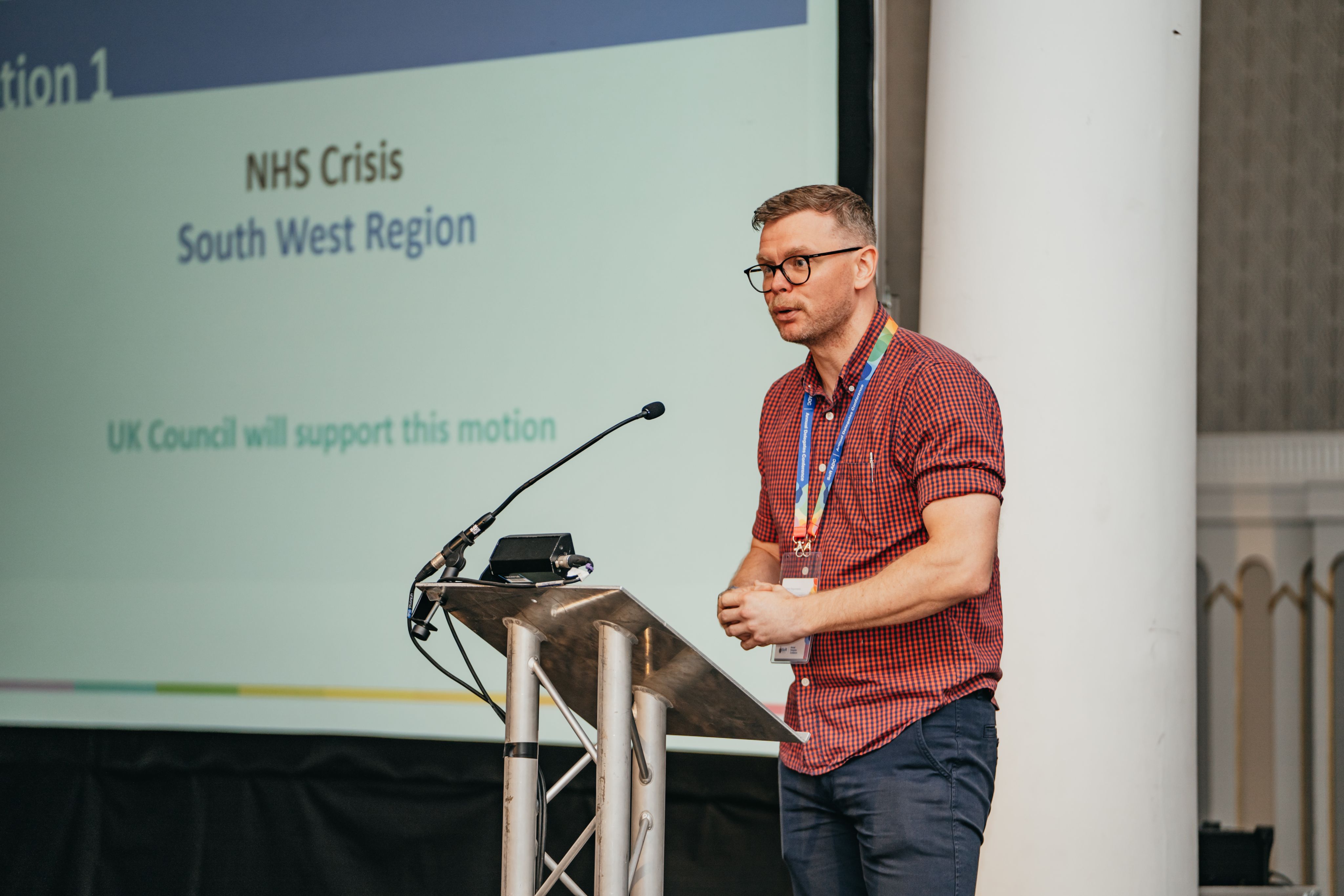
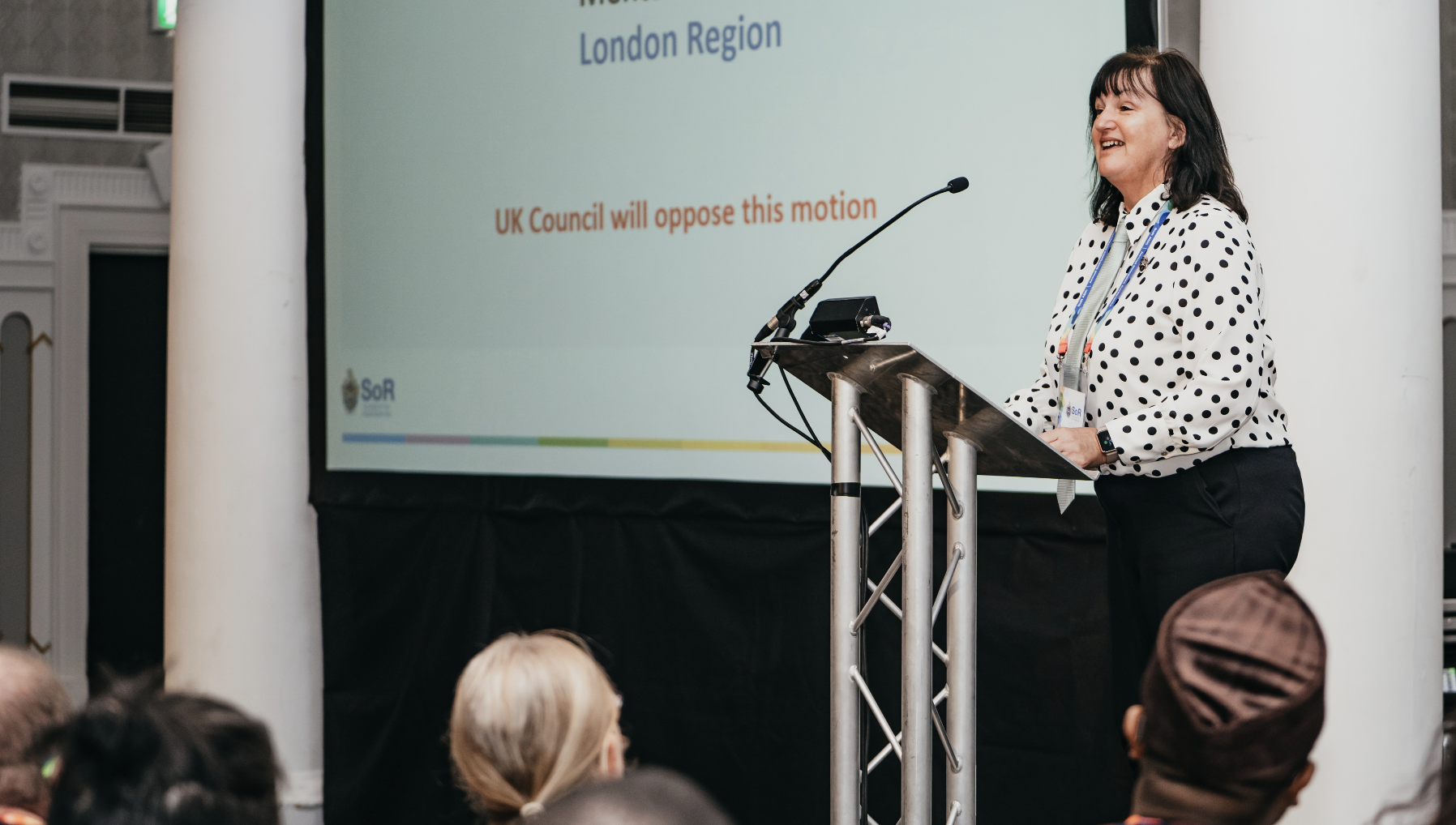
Health, safety and wellbeing
Motion 13
Conference calls upon UK Council to support the campaign to raise staff and patient awareness of the issues of unsafe practice and promote manual handling compliance.
Victoria Croft, Eastern region, proposed: “This is a problem that is encountered by many departments with an ageing population and obesity on the rise. We often feel pressured to undertake unsafe movements of our patients with minimal staff to assist us. If we feel we are putting ourselves at risk of a work-related injury, we should not feel guilty if this delays the patient's imaging until there is adequate staff to undertake safe manual handling of the patient. Staff want the assurance that we are backed by the SoR in our departments.”
Sophie White (pictured), South East region, supported: “Over the past 10 years, I've worked in many different care environments. In my time on the wards, we were so short staffed that I learned how to use a hoist on my own and to assist people who are twice – sometimes three times – my size to move themselves. I did not feel like I had a voice to say no. My colleagues and I developed bad backs, RSI [repetitive strain injury] and became visibly injured under this pressure. We cannot afford to lose our colleagues to injuries that are almost entirely preventable.”
Motion 15
Conference calls upon UK council to work with the NHS to make a pledge to work towards a reduction in workplace bullying.
Chukwuemeka Henry Elugwu, South West region, proposed: “Bullying may result in physical or emotional harm to a person and this may result in a person being withdrawn from his work or being affected in his family life. There is evidence to suggest many people experience bullying. A disturbed person can never be productive.”
Tessa Roberts, North West region, supported: “I had a period of sickness in 2018 when I was unable to take my children to school and leave the house, let alone step into work. I had panic attacks and a constant feel of dread as a result of how one person made me feel. I was off for a total of three months, putting further strain on my wonderful colleagues, and I felt an incredible feeling of guilt. I did not receive the support I needed and, in 2019, following further unacceptable behaviour impacting my wellbeing, and a six-month unanswered grievance, I handed in my resignation with no job or future plan.
“So just months after being awarded the Radiographer of the Year for Wales, I was leaving NHS Wales and, at the time, potentially the radiography profession, too.”
Michaela Clark, South East region, supported: “I left the NHS because of bullying. I took a management position in 2020 and I left in 2021. This person changed who I was. She reported me to HR unfounded. These investigations took nine to months to a year to resolve, and some even then weren't resolved. As an IR [industrial relations] rep, I put a grievance in. I really pushed and they said that although they found bullying tendencies, she did not bully me. So I didn't take it further. But this caused significant strain on my family, on my life, on my physical health.”
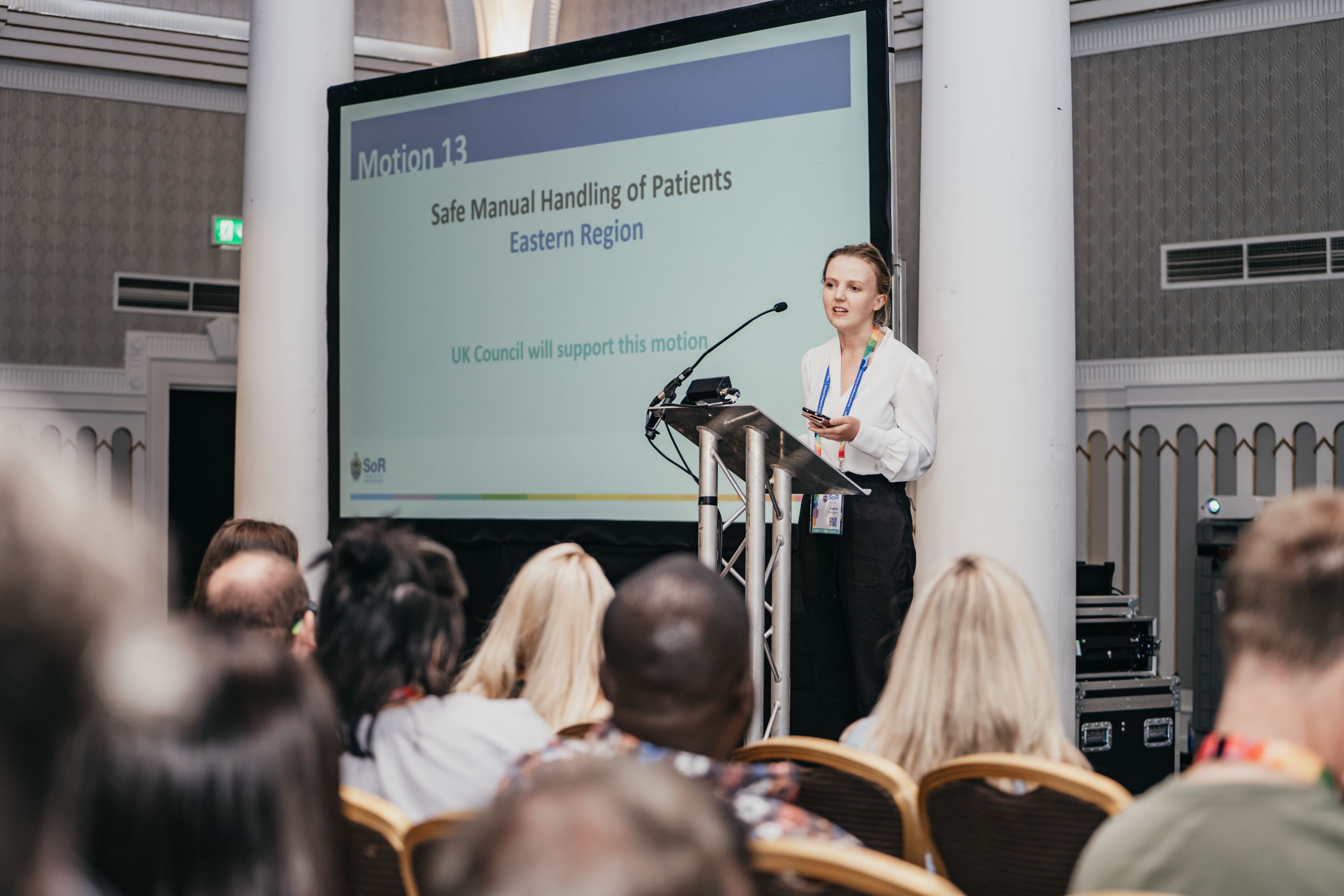
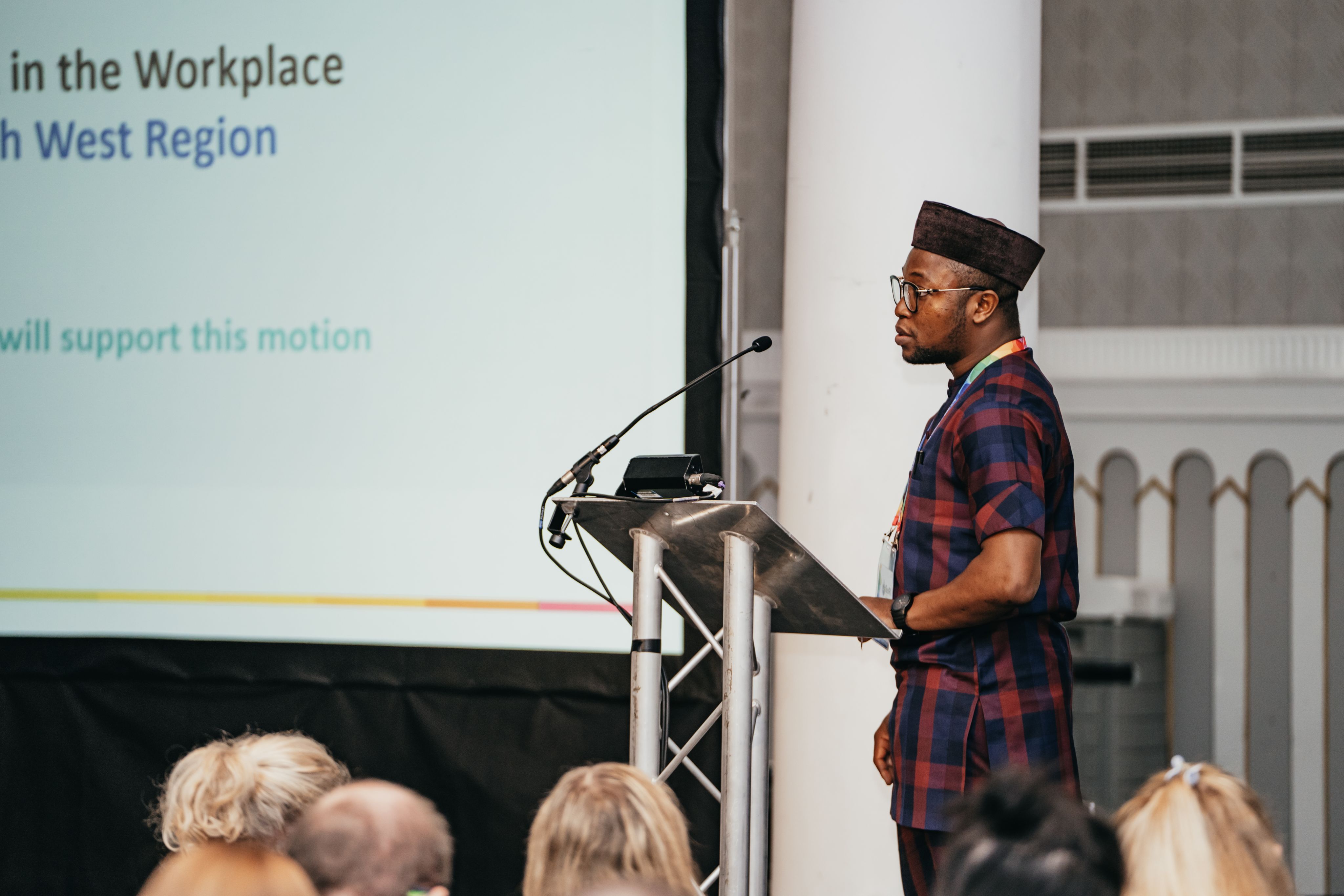
Students
Motion 16
Student claims for financial reimbursement for costs on placement: this conference calls upon UK Council to investigate the disparities between the regions of the UK and to press for more rapid payment of expenses once claims are submitted.
Sarah Evans, student, Midlands region, proposed: “The lack of parity in the amount and timeliness of reimbursement has put a lot of people in a difficult financial position and, possibly, made them unable to continue with their courses, which will impact on the supply of newly qualified staff to the NHS.”
Vicky Hughes (pictured), North West region, supported: “In my role for organising student placements, I'm very mindful that sometimes unavoidably students do need to utilise sites further away from the university for their placements. However, it's only right and fair that students are reimbursed appropriately and efficiently for the costs of reaching their place of training. We desperately need to retain students within our profession and, with increasing pressures on the cost of living, it would be a travesty if financial pressures were the reason for students choosing to withdraw from training.”
Motion 17
Conference calls upon UK Council to ask higher education providers to be transparent with students at the recruitment phase, providing clear information about the range of placements they may be required to attend during their pre-registration programme.
Sally Mieu, student, London region, proposed: “The demand for clinical placements has soared and students are increasingly being sent to a wide array of clinical placement sites to fill their hands-on training requirements and, of course, this becomes financially difficult. It's really distressing to watch bright and aspiring students just left in the dark and uncertain about where they're going to spend a substantial proportion of their education and the lack of information around this creates unnecessary anxiety.”
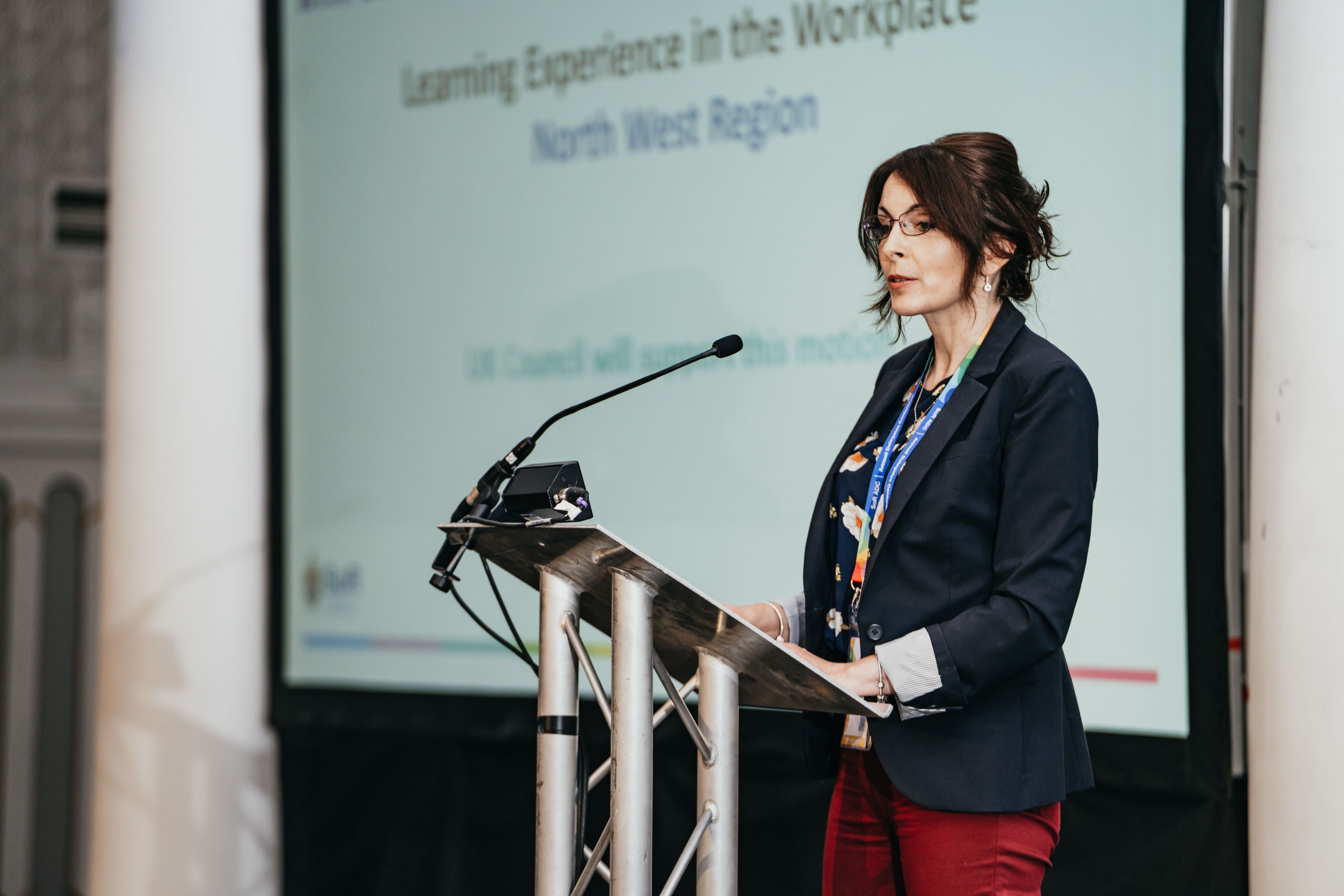
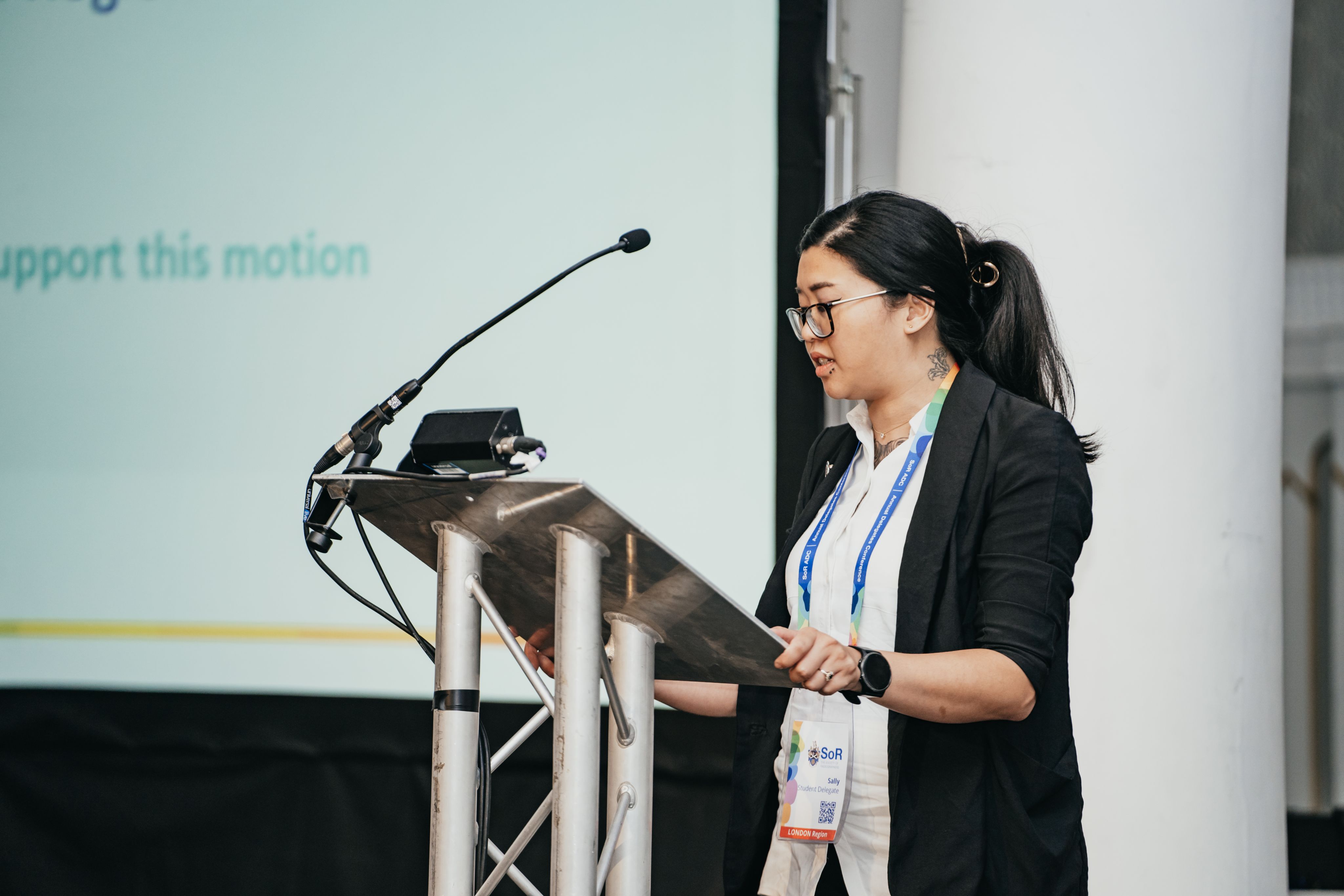
Pay, terms and conditions
Motion 20
Conference calls on UK Council to work with the SoR full-time officers to produce article(s) in our professional publications explaining employment terms and conditions with regards to working hours and rest periods.
Alexandra Hatfield, Wales, proposed: “Section 27 of AfC terms and conditions indicates we are all entitled to an 11-hour daily break and a 35-hour weekly break. These breaks were introduced to ensure individuals don't work too many hours, in the interest of health and safety of both staff and patients. We in Wales have seen these terms and conditions broken time and time again, mainly with the 35-hour weekly break. We believe it is imperative that we raise this important safety standard to our membership. Now more than ever.”
Sheila Hassan, London region, seconded: “How many of you have come across managers who actually know the terms and conditions that we are employed by? How many of you have searched for a policy at work and cannot find it because of the complex databases that they are hidden on? By publicising these in guidance documents, we'll provide more easily accessible documents to our members and remind our managers that the SoR supports and endorses these.”
Motion 21
Conference asks that UK Council lobbies NHS Employers to allow AfC Band 8 staff to claim overtime payments to make the workplace a fairer environment.
Karen Cullen, South East region, supported: “AFC Band 8 staff are not allowed to claim overtime, which is absolutely outdated and ridiculous in our current climate. We haven't got enough staff and yet we are stopping a whole group from supporting the rest of the staff. In addition to this, some of the Band 8 staff actually had a pay cut in the recent pay round because of a change to pension contributions. The natural thing is to do a bit of extra work to make up the deficit but, unfortunately, they're not allowed to do that. So the only way they can get around it is to help out by doing lieu time, but then they can't take the lieu time because they can't just leave their staff.”
Motion 22
Conference calls upon UK Council to ask the SoR to enter into dialogue with other unions to look at the options available for ways to support members who will be affected by the increasing retirement age.
Joanna Southey, Midlands region, proposed: “We need to explore ways of enabling our workforce to continue working longer with more flexible roles that have less physical demands.”
Gemma Glenn, Northern Ireland, seconded: “We believe radiography is a very physical, mentally tiring and emotional job. Within my own role as a therapeutic radiographer, there is the daily manipulation of a patient's position and complex interpretation of images to ensure accurate and up-to-date radiotherapy cancer treatment. The police and fire service in Northern Ireland are able to access their benefits from 55. We need to be forward thinking to ensure there's a suitable workforce for the future.”


Equalities
Motion 24
Protected characteristics disparity ratios: this conference calls upon UK Council to encourage NHS trusts and boards to continue to collect and use this data to ensure that they are accountable.
Constance Seddon (pictured), SoR Equalise network, proposed: “This change means the disparities will go unnoticed and unchallenged. A good worker is just a good worker, irrespective of their colour, creed or sexual orientation. Our business is providing excellent patient experience with our service. So if and when the ground is level, the NHS and its patients will gain more from the talent available in the workforce.”
Arthur Williamson, London region, supported: “The idea that the trusts can no longer be obliged to publish the data is shocking. That just opens the door to discrimination. There's more work to do but how do we know if the trusts are progressing? How do we know if they're complying? I think it's a ridiculous idea by the government.”
Motion 27
Practice-based support for neurodiverse students: conference calls upon UK Council to survey the neurodivergent student population on how they feel about the support they receive. The outcome should be published and used as a foundation to create a national policy.
Ben Potts (pictured), student, Midlands region, proposed: “Neurodivergent students have many things to weigh up before disclosing their difference or disability – the stigma and fear of being viewed as weak or 'lesser than'. There's anxiety, a feeling that you're burdening staff with the adjustments you need. And there's the core desire to fit in with the team and not feel like an outsider. If they do take a leap and disclose, they should get a specific placement support plan listing the reasonable adjustments they require. However, in many cases, this is not standard practice and then there's no assurance that the radiographers they work with will be supportive in implementing a plan.”
Jennifer Wood, Yorkshire and North Trent region, supported: “One in seven students in higher education is projected to be neurodiverse. I've recently had one of my students – newly diagnosed as neurodiverse – come to me, incredibly upset and worried about their placement because they don't learn the same way as other people and they're worried that it's going to be harder for them to pass. They didn't feel they could bring up their neurodiversity as they're worried about discrimination and the stigma attached.”
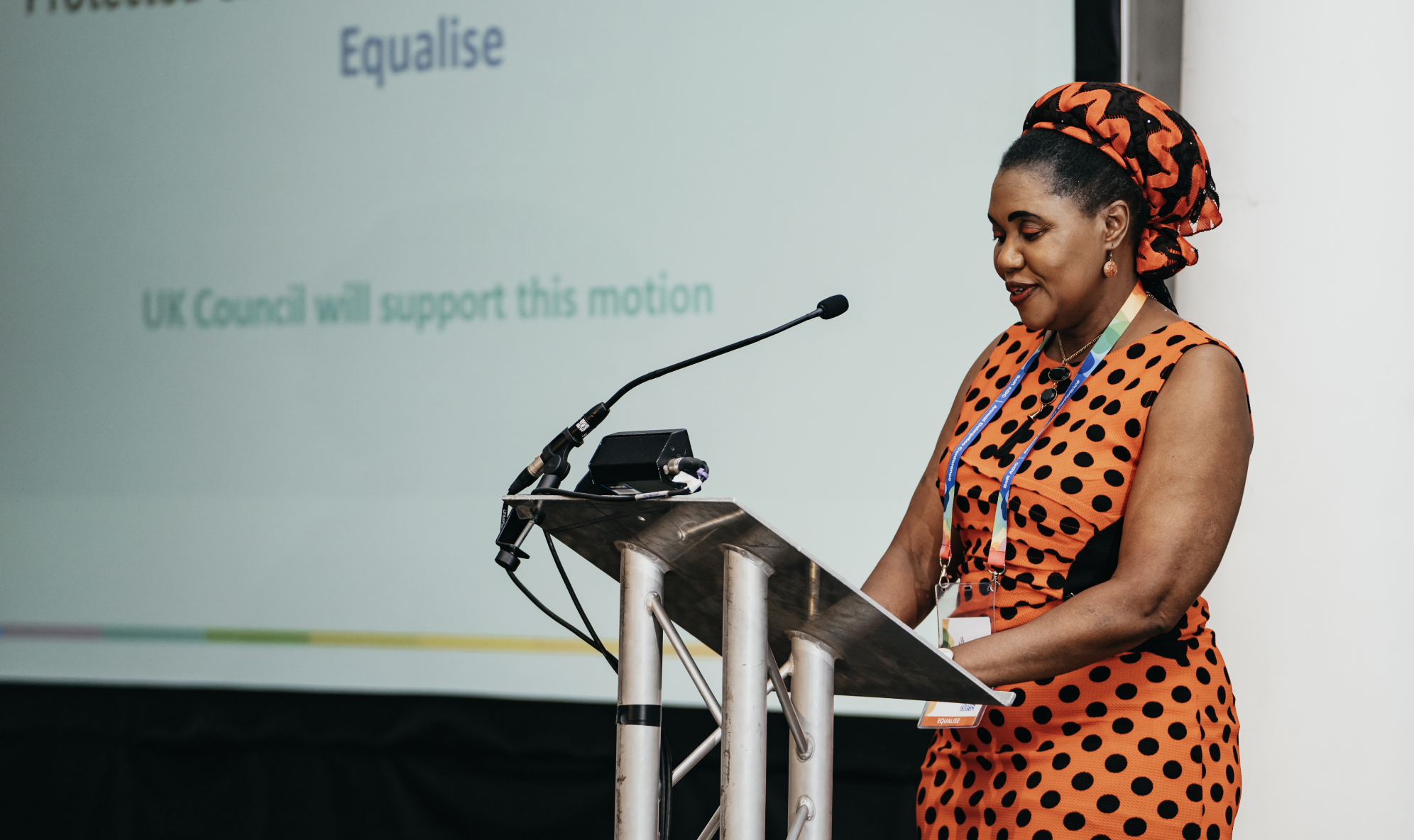
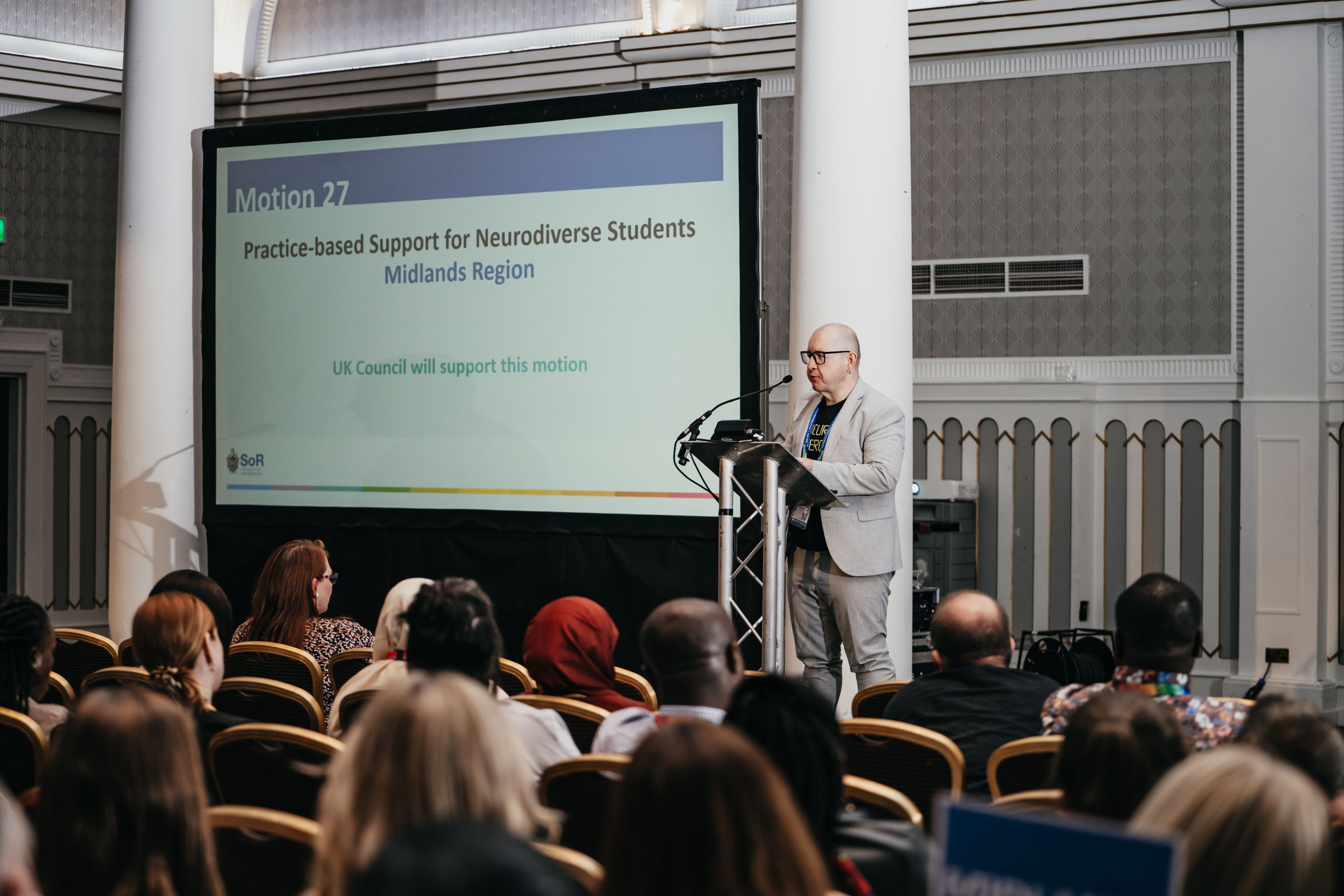
SoR policy and engagement
Motion 31
Conference calls upon UK Council to help promote the mammography radiographer role to future radiographers and help with the retention of mammographers.
Satcha Magorimbo (pictured), Midlands region, proposed: “The duties of mammographers are not being fully explored during training because some placements don't have the capacity to offer this as a placement option or the time spent in the breast department is very short. I'm proud to stand here today as a mammographer, wishing everybody knew how amazing the profession is and what opportunities it brings. We need to help clear stereotypes and draw attention to the profession and ensure the cancer services workforce is not just seen as doctors and nurses.”
Motion 34
Conference calls upon the SoR to issue a report on the potential positive and negative impacts of artificial intelligence (AI) and report back to next year's ADC.
Andy Pitt, North West region, proposed: “Yes, there's potential for improvement with the benefit of faster and more efficient diagnosis but what are the perceived potential risks?"
Charlotte Beardmore, the SoR's executive director of professional policy, added: “There is currently a risk that the IR(ME)R regulations are being amended to not include the legal requirement for a second person to work alongside an Al tool. So we are working really hard with colleagues from the RCR, IPEM and with the CQC to ensure that the regulations are adapted to ensure Al is introduced safely with the requirement for a professional working alongside. We're pushing really hard and it'll be great to come back and deliver on behalf of UK Council an update on the work we are doing on AI.”
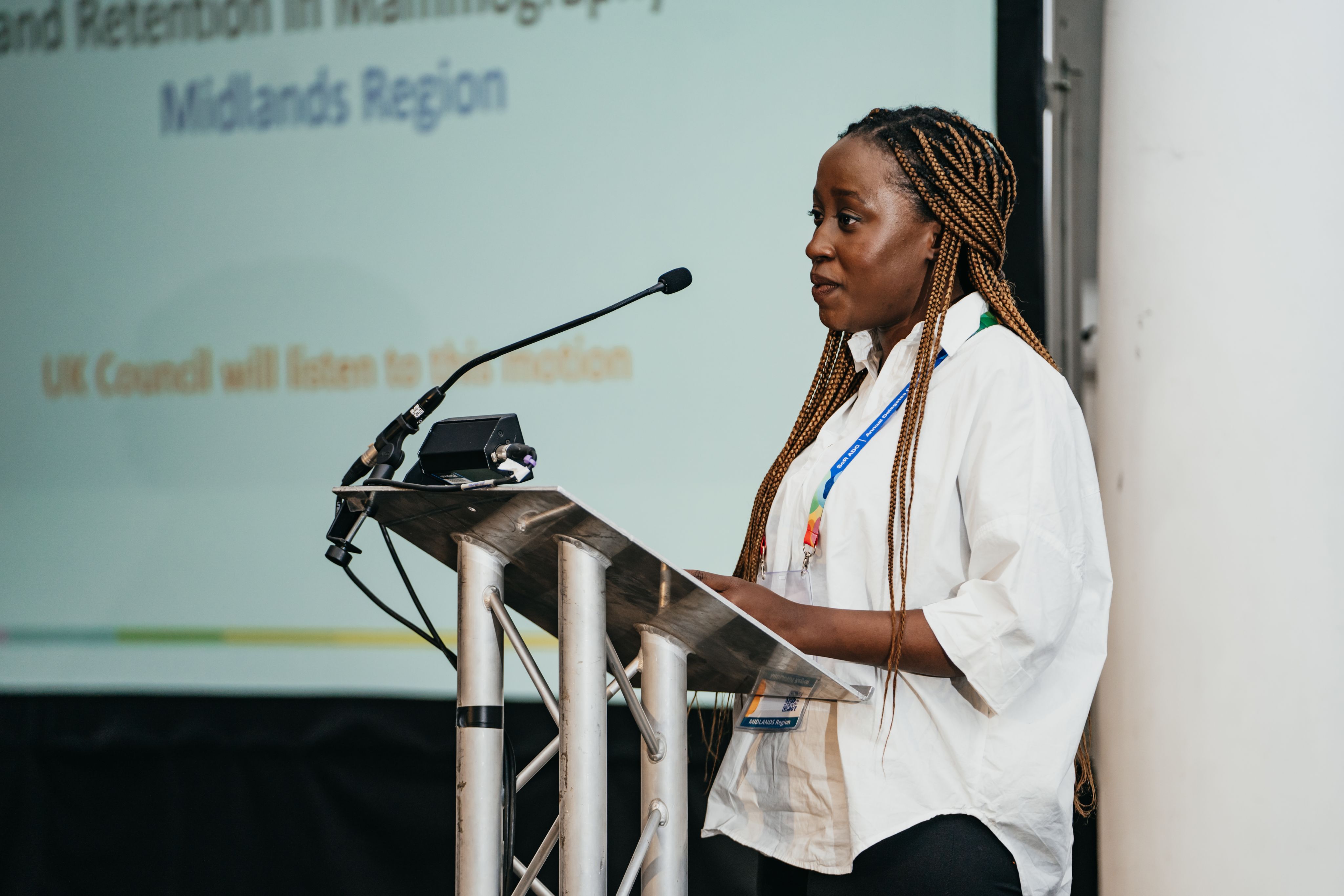
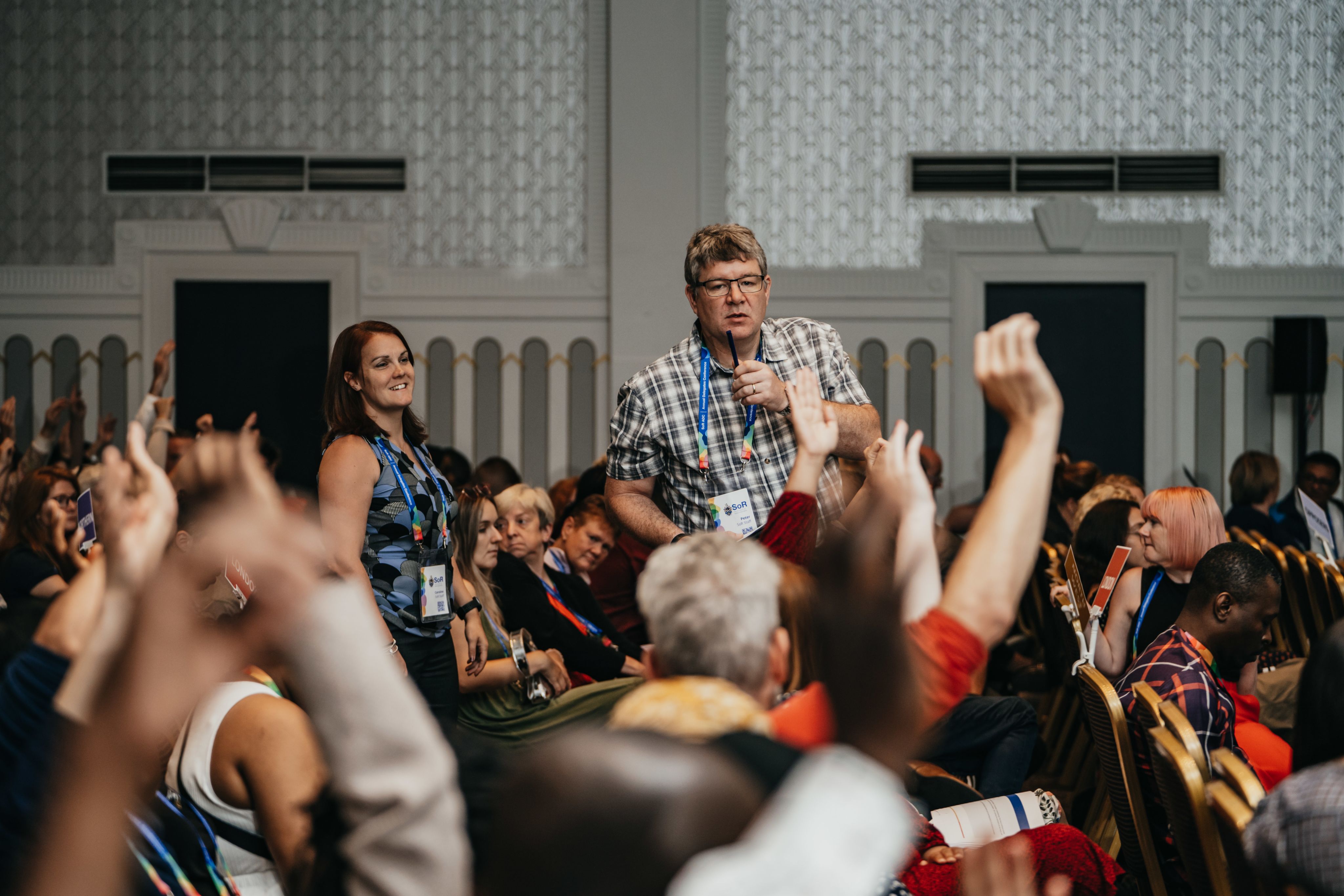

Education and training
Motion 51
This conference calls on UK Council to engage with higher education providers and clinical placement staff to promote LGBTQI+ training to enable students and trainees to have the best possible experience while on placement.
James Barber, SoR Equalise network, proposed: “More students openly identify as LGBTQI+ than ever before. However, they often struggle in academic or clinical settings.
"These poor experiences are often due to a lack of knowledge and awareness from clinical and academic staff. This can lead them to make avoidable mistakes, which can easily cause these students to feel less safe and comfortable or less able to discuss their identity and express themselves. It's a tiny thing to be able to state your preferred pronouns and have them respected – and something that can be easily overlooked by someone who has never had to consider this in their own life.”
Nate Harley (pictured), student, Midlands region, supported: “I put this motion forward to Equalise as both a gay and a transgender student. I've had a challenging time on placement having been misgendered and put in a position where l've not felt comfortable or safe to own up about my own identity. But it's not just myself. For students who identify as non-binary, staff are unsure how to ask about pronouns. By increasing training, it will allow students to feel comfortable and to grow in the placement environment.”
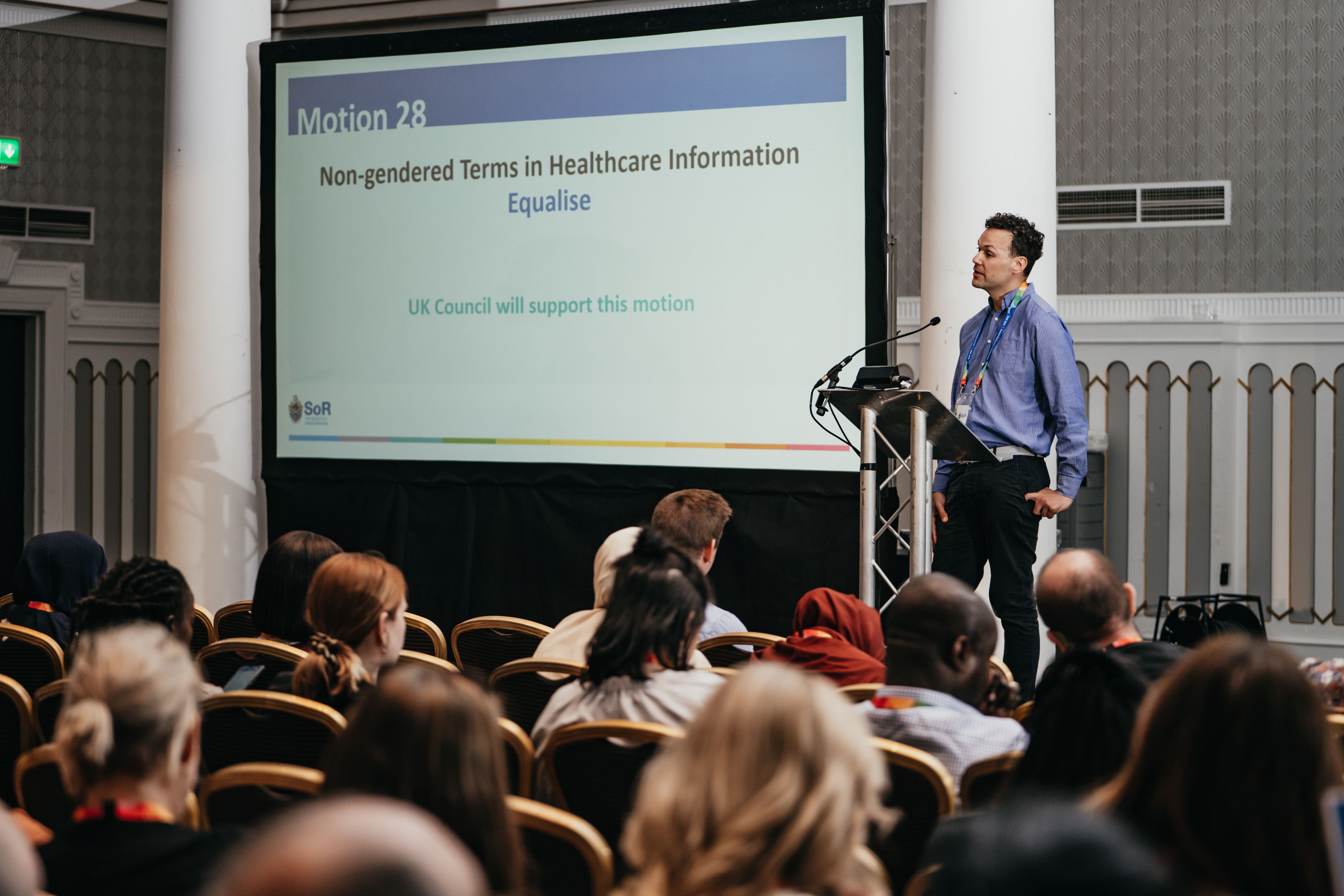
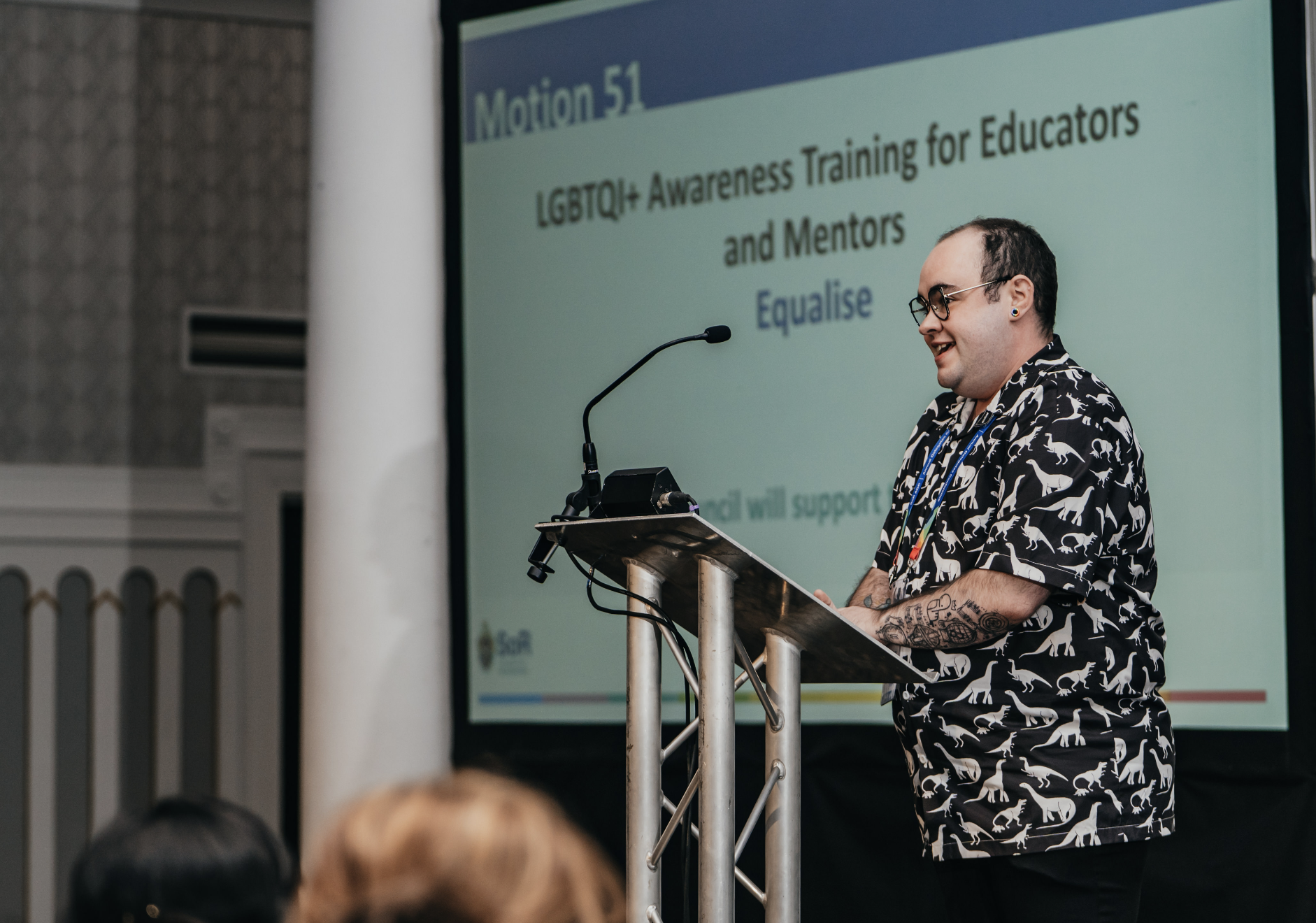
My first time at ADC
Caitlin (left) and fellow student delegate Angela Ashcroft
Caitlin (left) and fellow student delegate Angela Ashcroft
Caitlin Bagnall, diagnostic radiography student at the University of Leeds
My interest in ADC sparked last year, when I saw students from across the country attending and meeting each other as well as connecting with radiographers from all over the country. Although I had seen posts on social media about the conference, I was not sure what to expect. So when I received an email about the conference, I put my name forward to attend but never believed that I would actually make it on to my delegation (Yorkshire and North Trent).
When we were offered a place, we were all asked whether we would like to put forward a motion for our region. There are many issues both students and staff face that would have been really useful motions but I did not have the confidence to put forward my own.
When the delegation came together before the conference to decide whether we would support, oppose, or listen to debate for the different motions, my delegate lead, Karen Smith, asked for delegates who were willing to get up and speak. As I sat listening to other people agreeing to speak, there was a motion that I believed was important that no one was volunteering for – so I decided I would get up to second the motion.
This was motion 13 on the subject of safe manual handling of patients, put forward by the Eastern region. When I agreed to second the motion, I went away to do further research. I combined this with my personal experiences and those of clinical staff to write the best speech I could. I was extremely nervous to speak as I had never done anything like this before but the conference was very supportive. Every time a new speaker got up, they received a round of applause and were listened to quietly. Due to nerves, I stumbled on my words and had to adapt the end of my speech as I was running out of time but I did get my point across.
I received lots of praise from people at the conference, which really improved my confidence. I can now see there was no need to panic because it all went really well. I was also approached by Steph Edwards and Thailay Roscoe, who are two amazing students that put forward their own motion on the final day of conference and closed the conference in 2022. When they approached me, they gave me the opportunity to close ADC 2023 because they were really impressed with my speech. I did this alongside another first-time student delegate, Angela Ashcroft, and on the Monday evening we sat and wrote a speech to close the conference.
This was a massive honour, it also hugely increased my confidence speaking in front of a large delegation. I now feel that I can bring my own motion to the conference and my aim is to hopefully attend ADC 2024 and put forward my own motion.
I learnt a lot by attending this conference. I was able to see how issues change in different regions, how they are similar in others, and to learn about the hardship faced by everyone in the profession. It felt amazing to have so many students included in this event. I am really excited for next year and to hopefully bring some well-rounded motions to the table to improve the radiography world for years to come.
Find out more...
To find out more about the conference and watch video footage of all motions, visit the ADC pages on the SoR website and click here to view the full list of ADC motions.
Image credits: Eva Slusarek
Now read...



